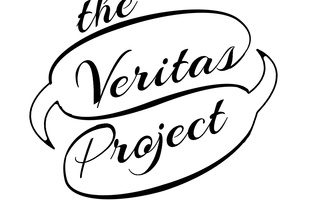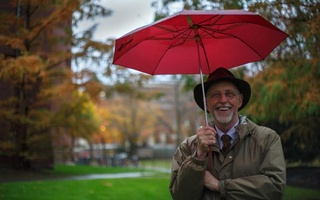Mushrooms overtook the Harvard Museum of Natural History on Saturday afternoon as students of Organismic and Evolutionary Biology 54: “Biology of the Fungi” hosted the course's third Fungus Fair, bringing in a troupe of visitors, students, and eukaryotes.
The event, which attracted around 200 visitors, featured booths manned by students in the class around the museum. After choosing a topic related to fungi, each student set up a presentation to teach attendees what they had learned.{shortcode-b8283ed6b4dd0095e1759ec9fd5f060b05bd09dd}
“We often say that the way that one learns—really learns—a topic is to teach about it. So they all have topics that they’re teaching about,” said course instructor Donald H. Pfister, a professor of systematic botany.
Topics ranged from “What do fungi have to do with your electricity bill?” to “How do fungi travel?: Fungi hitchhikers.” Many of the booths were interactive, featuring various samples of local fungi from Cambridge.
Despite recent weather conditions, the class was able to amass a large assortment of fungi.
“It’s been quite dry, so we’re lucky we could go out and find this vast array of fungi to show people,” Pfister said.
Paul Cervantes ’19, who presented on how fungi interact with coal deposits, said he and his classmates went to Estabrook Woods in Concord, Mass., to collect samples.
“Getting large samples of fungi that look like fungi was challenging,” he said.
Cervantes added that another challenge was making the topic “less boring.” Because many of the topics involved scientific jargon and required some prior background knowledge, students strove to make their presentations accessible to the public.
“It’s not the most sexy topic,” Cervantes said.
In addition to taking care of logistical details for the event, the museum's staff advised students on how to communicate their work to visitors.
“I think museums help serve as a bridge between Harvard and the public,” said Wendy Derjue-Holzer, the director of education at the Museum.
Evan M.J. Liu ’18 said he saw the event as a unique opportunity to raise interest in science among the general public. Liu’s booth involved a quiz that matched visitors with different types of fungi based on their personality.
“I like how it exercises a very different part of science. I think part of science is reaching out to the community, getting it interested in this stuff,” he said.
Attendee Zijay Tang, a graduate student at MIT’s School of Bioengineering whose current work is related to fungi, said he was very glad to see an event centered exclusively around fungi.
“I couldn’t find anyone in the MIT community that does fungal stuff,” he said. “I wanted to come here for some inspiration.”
Pfister, who was the interim dean of Harvard College from 2013 to 2014, is well known among students for his passion for fungi.
“[The students] are all engaged,” Pfister said. “I’m always very proud of them for the effort they’ve put into this activity.”
Read more in Faculty News
Professors Criticize Political Rhetoric Following Presidential Town HallRecommended Articles
-
'La Mancha' Kicks Off HRST on Light NoteHarvard-Radcliffe Summer Theater (HRST) has begun their season with an appropriately light piece, Dale Wasserman's "Man of la Mancha," an
-
 The Veritas Project: The Story Behind Dean Pfister’s Fungi
The Veritas Project: The Story Behind Dean Pfister’s Fungi -
 Harvard Today: March 26, 2014
Harvard Today: March 26, 2014 -
 Where Is Pfister, and What Is He Reading?
Where Is Pfister, and What Is He Reading? -
 Marilyn Arsem Explores Time in New MFA Exhibit
Marilyn Arsem Explores Time in New MFA Exhibit













